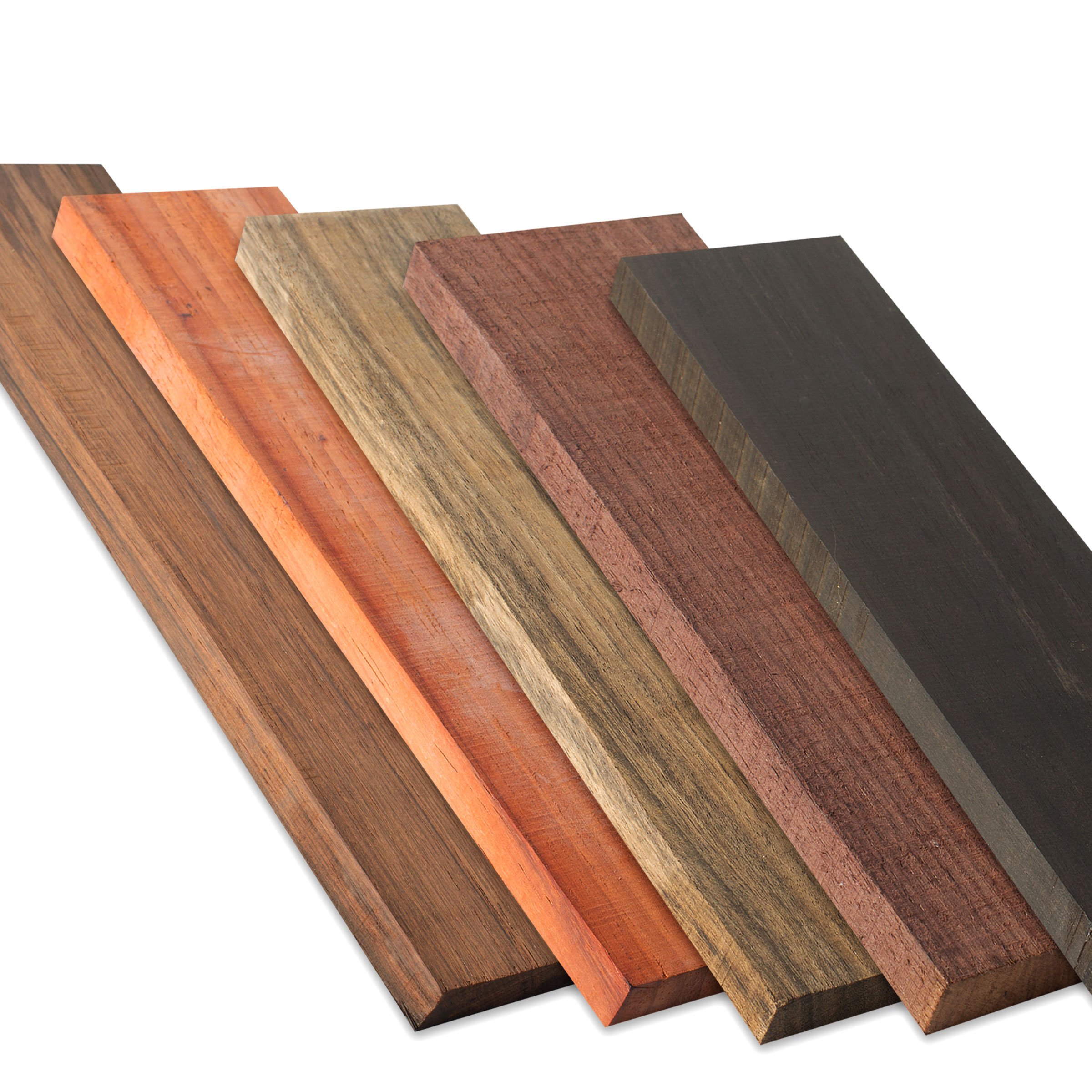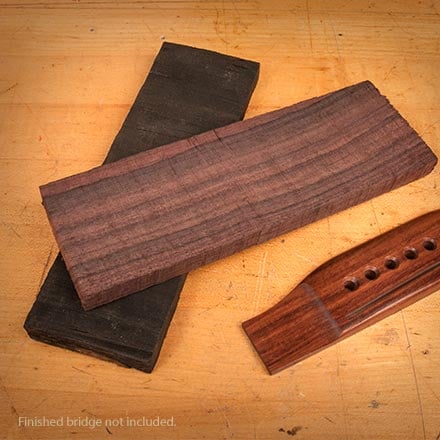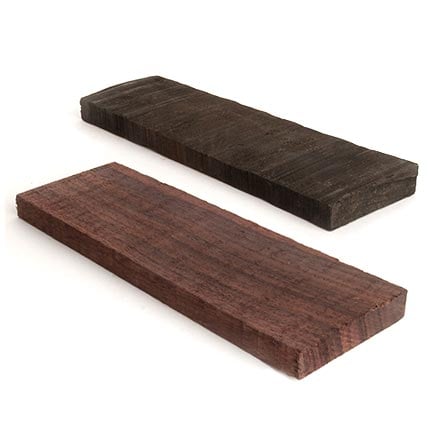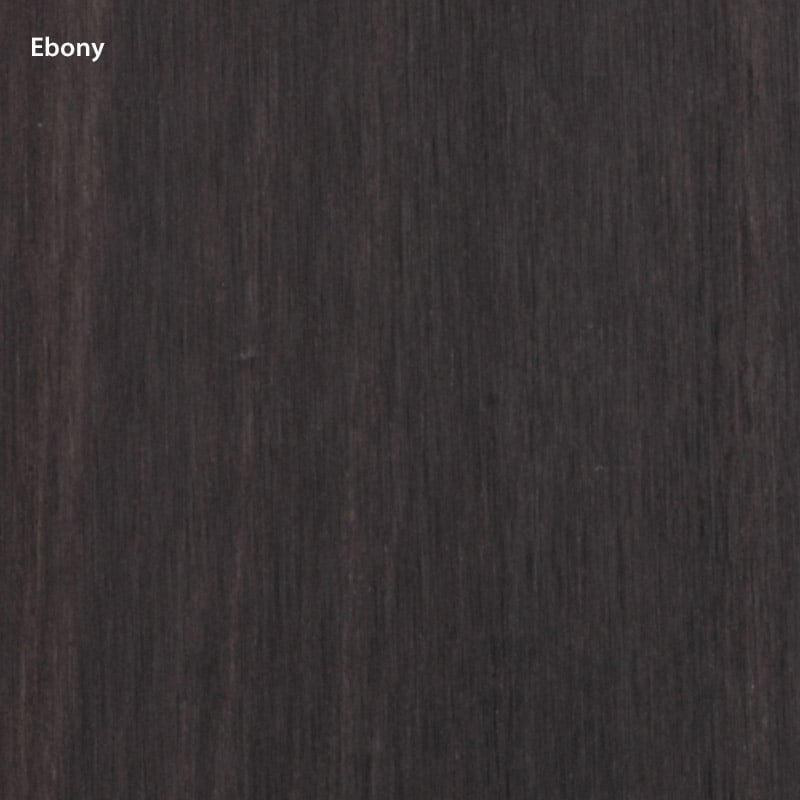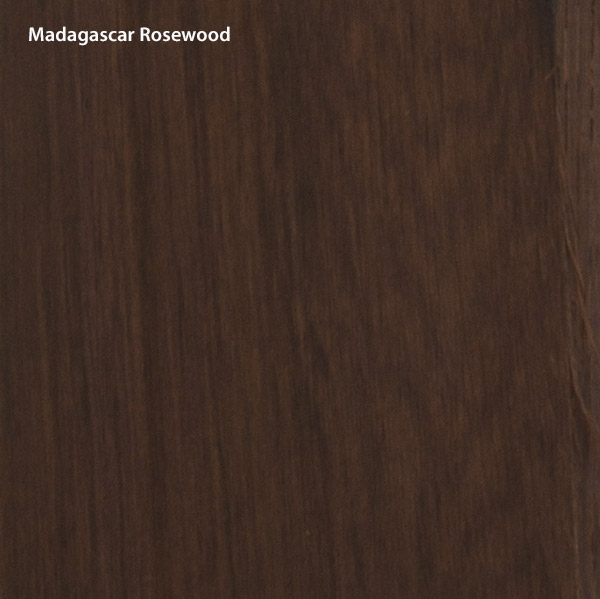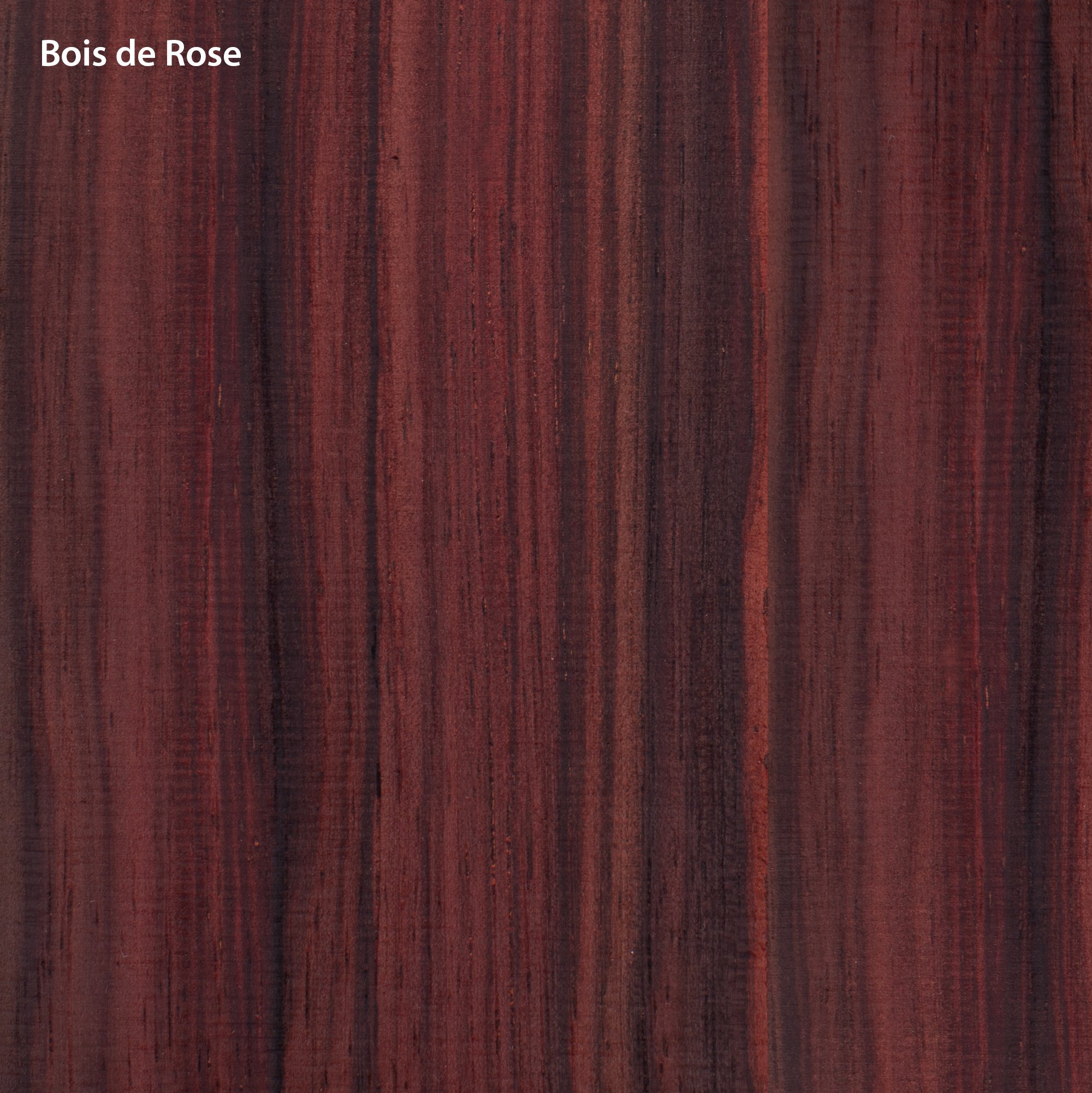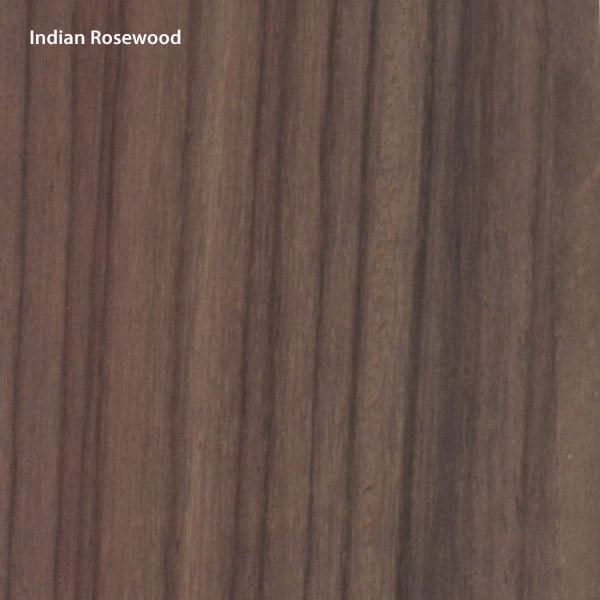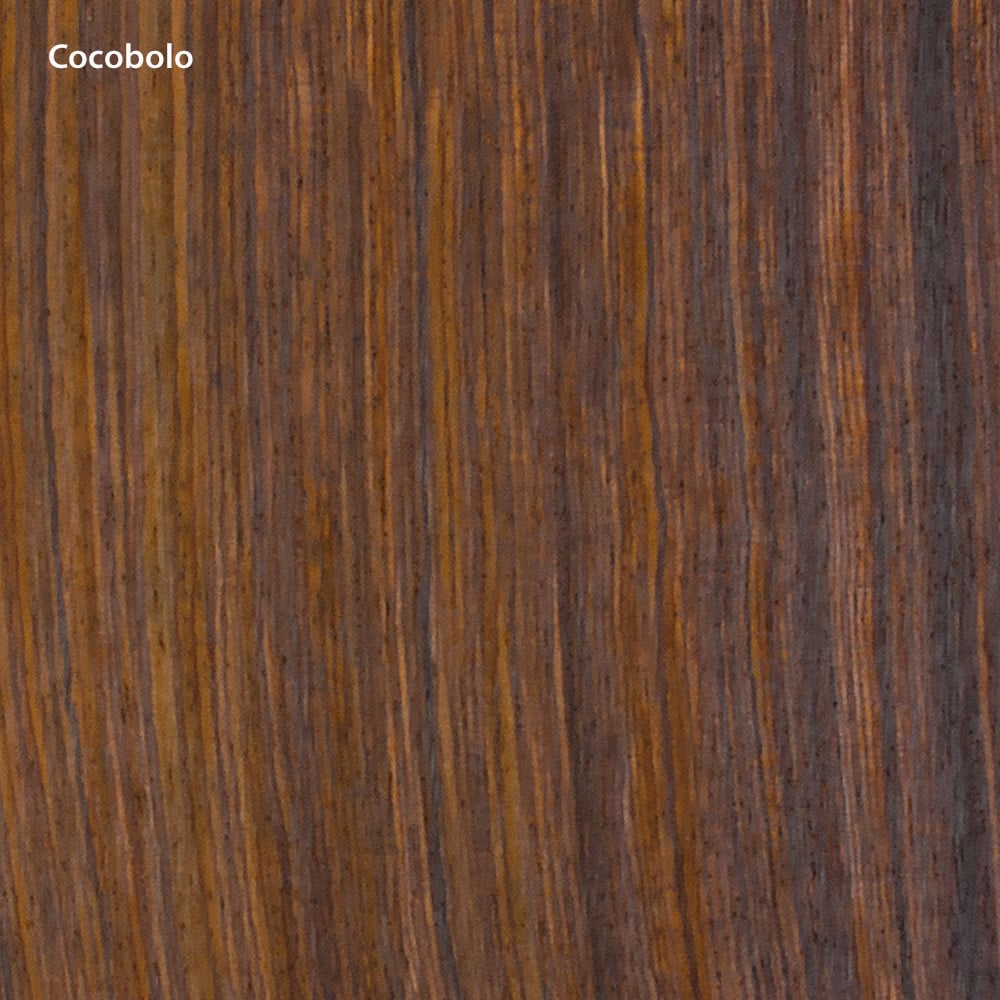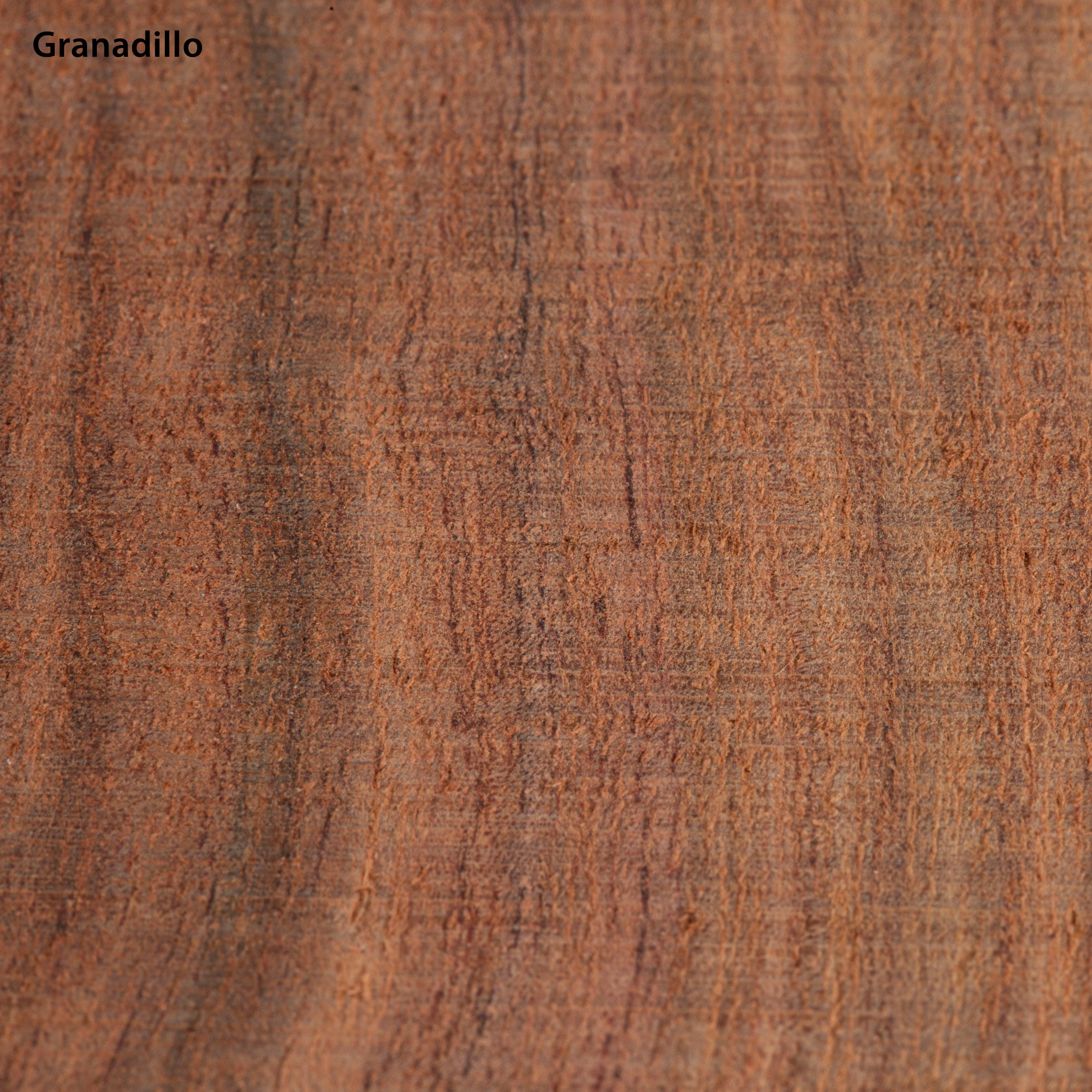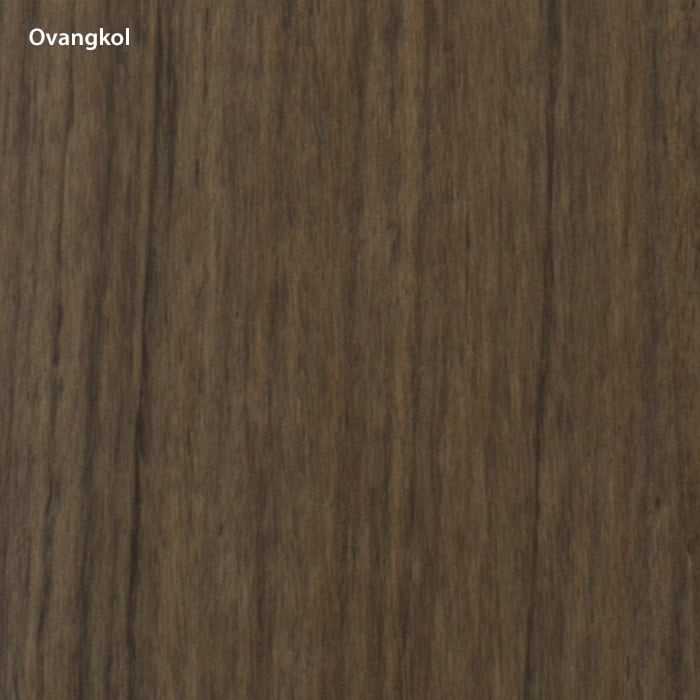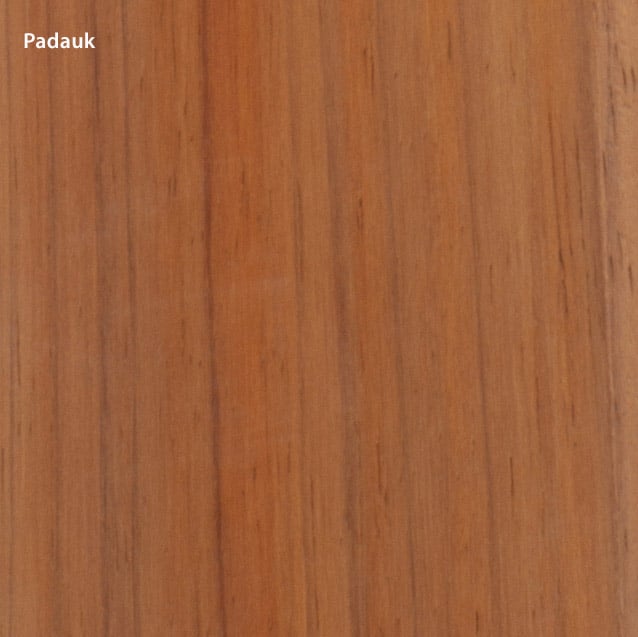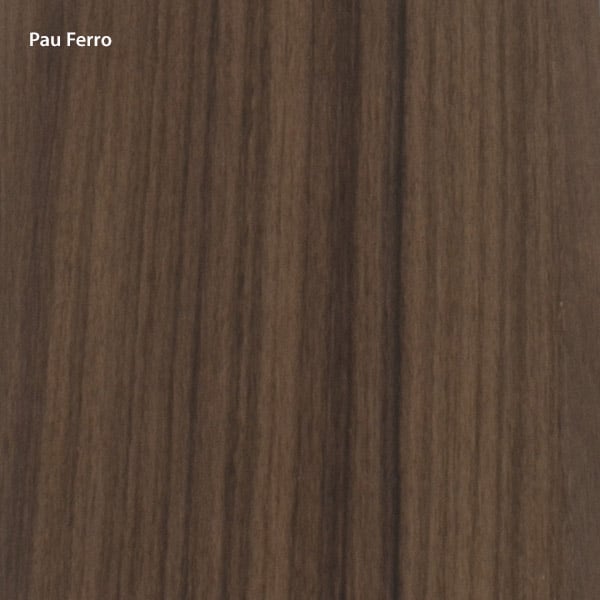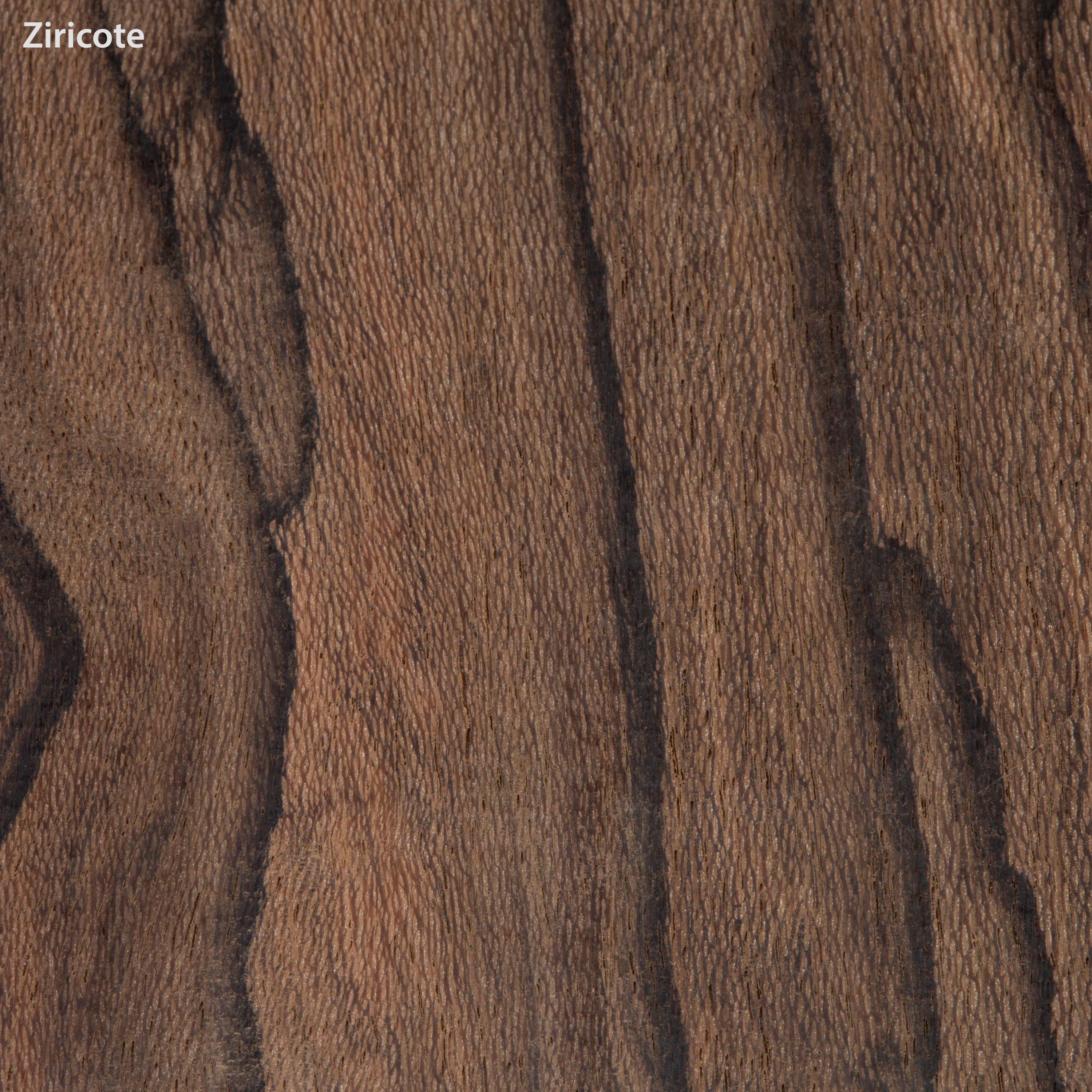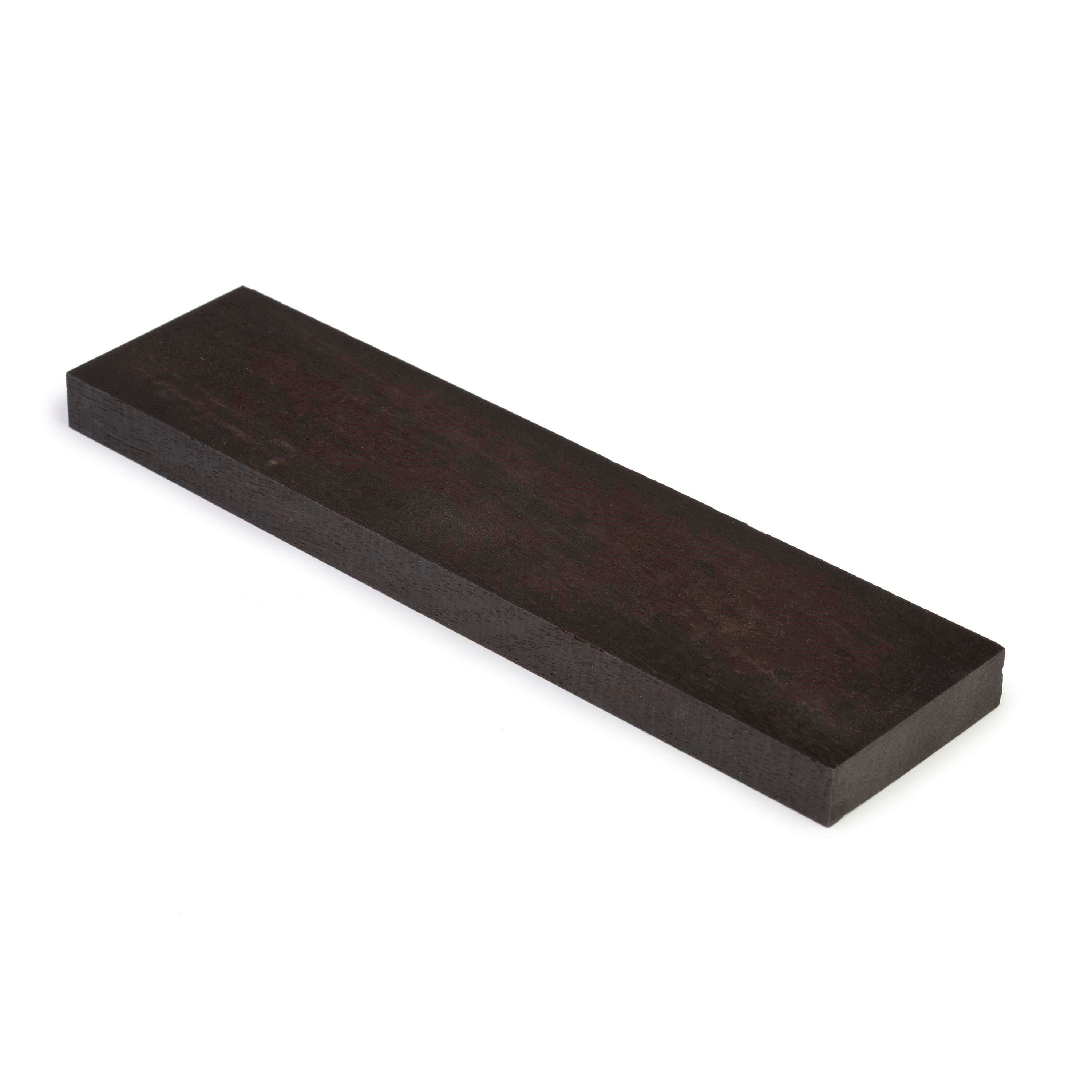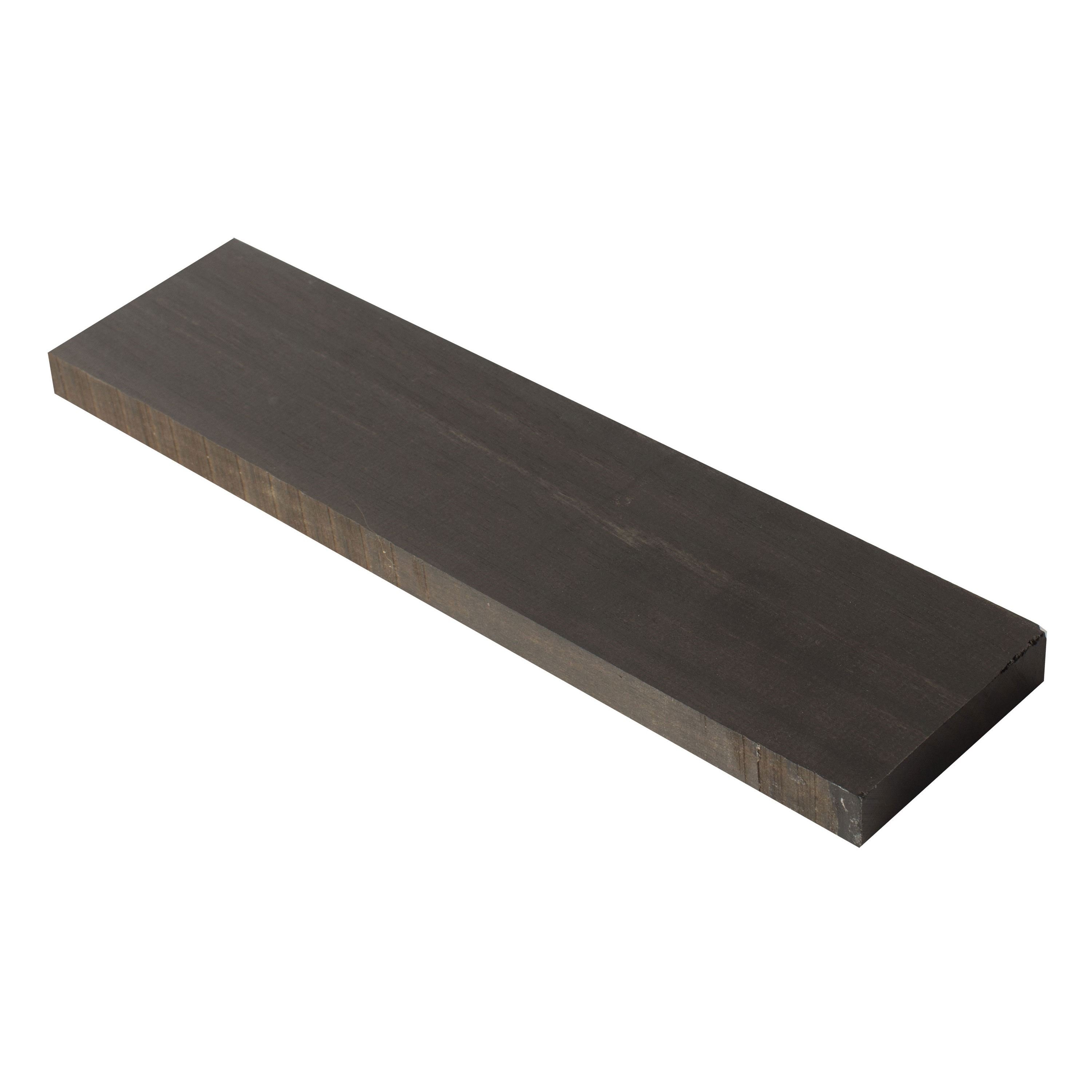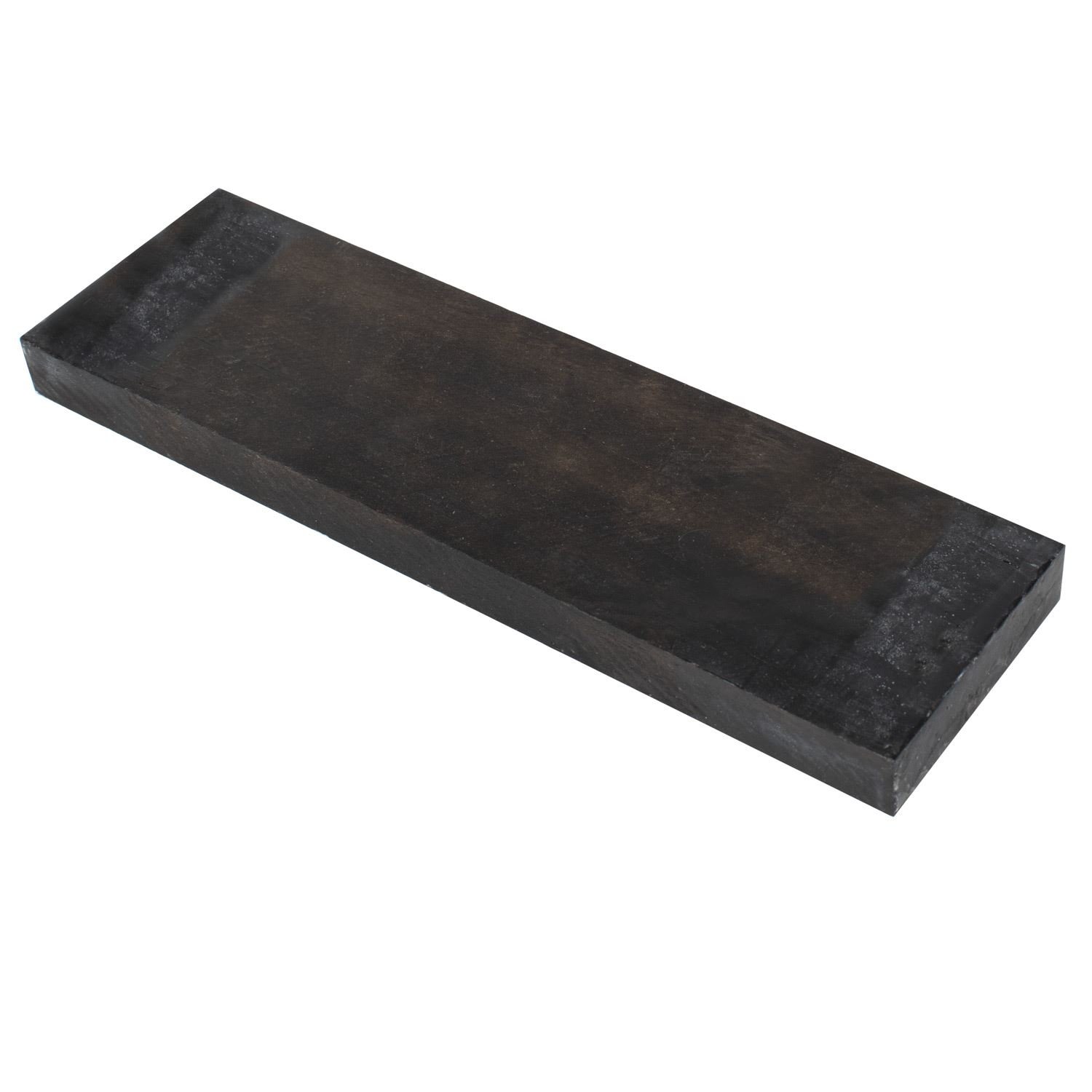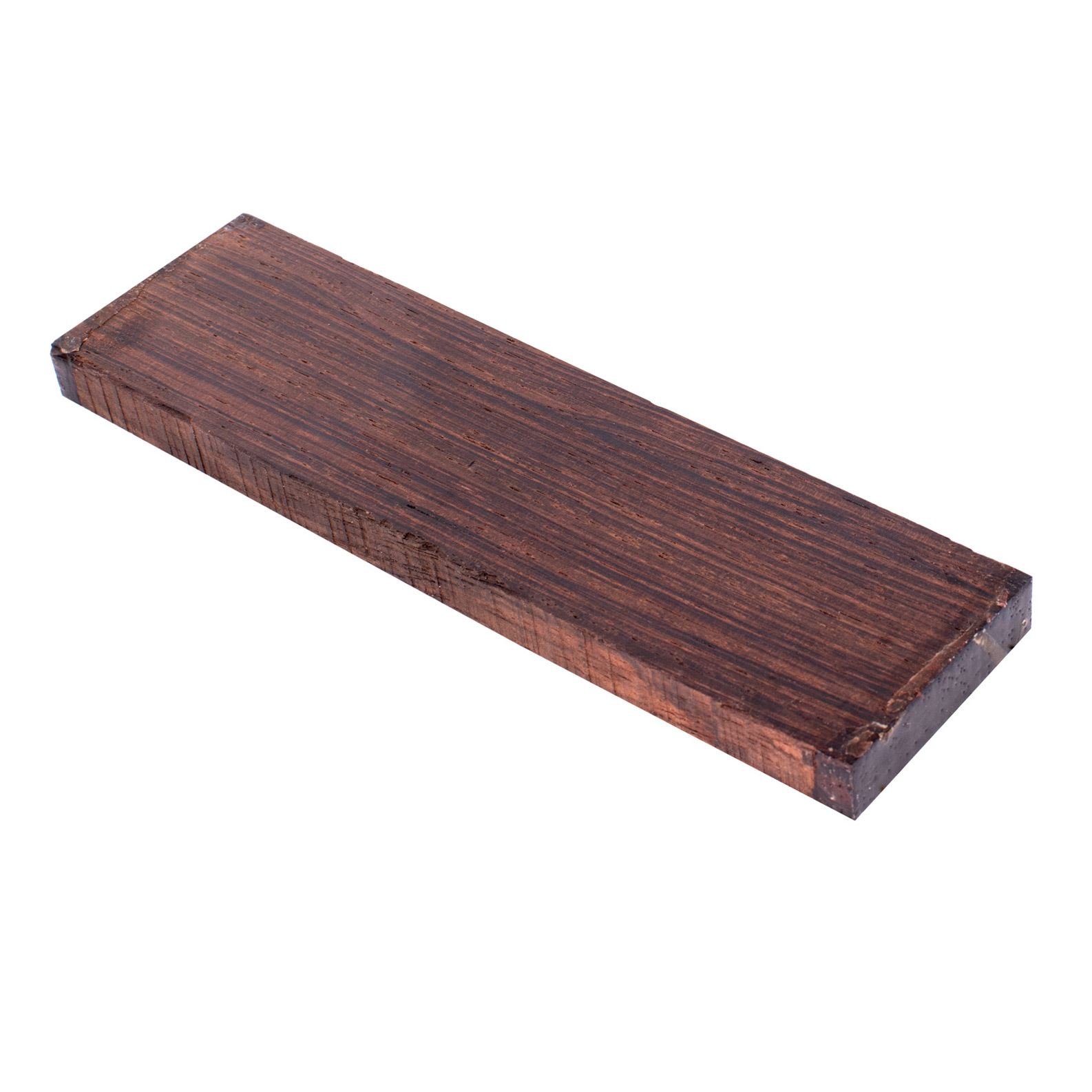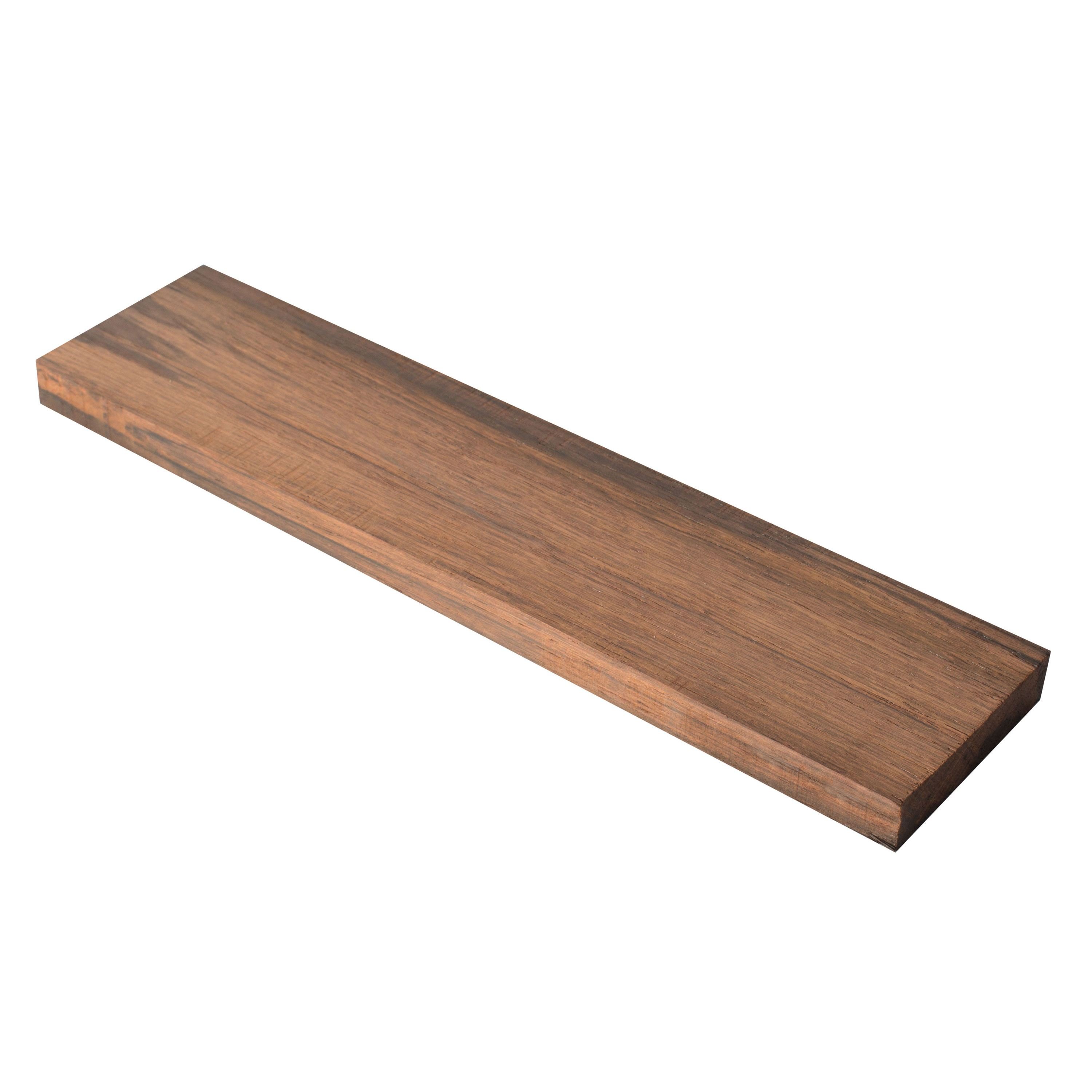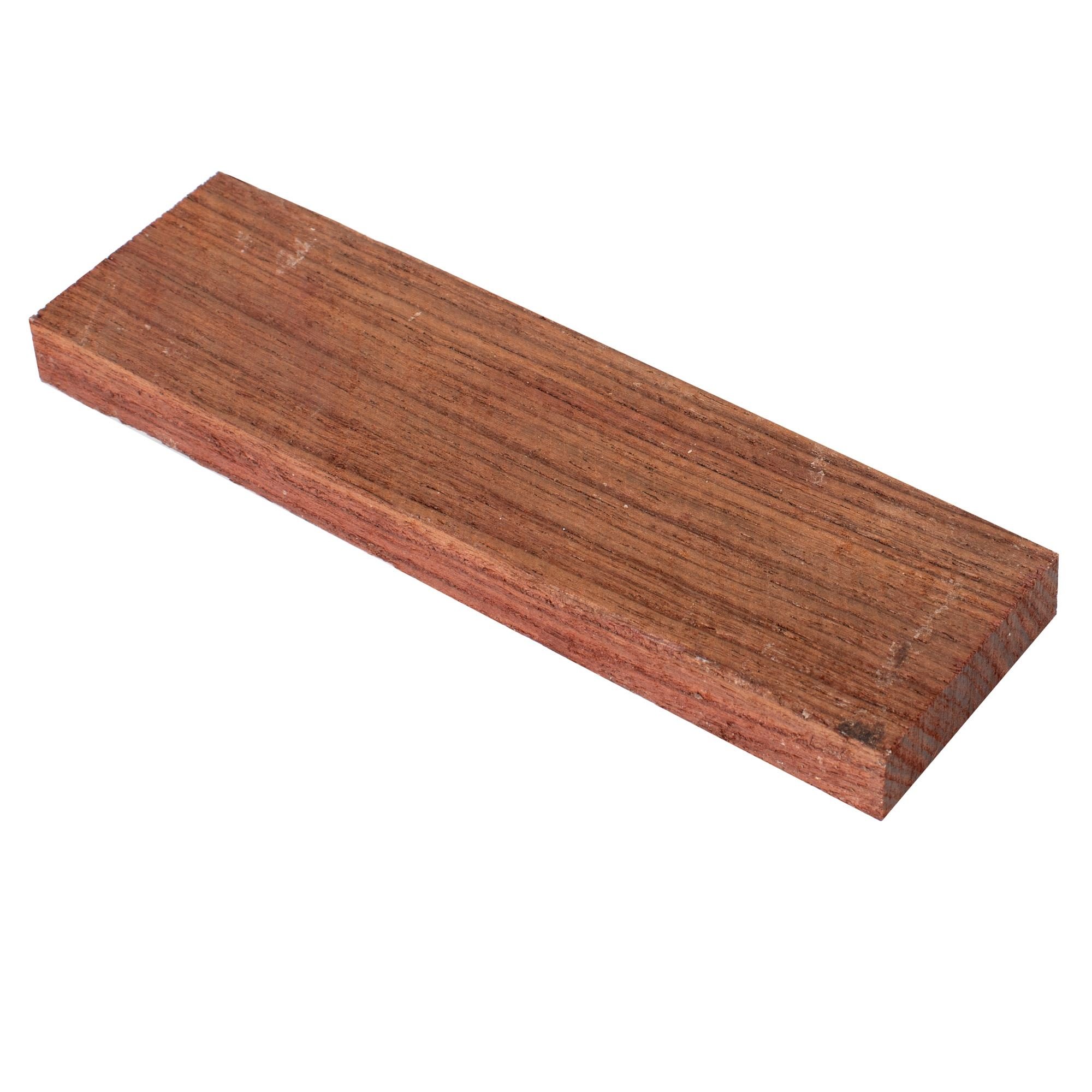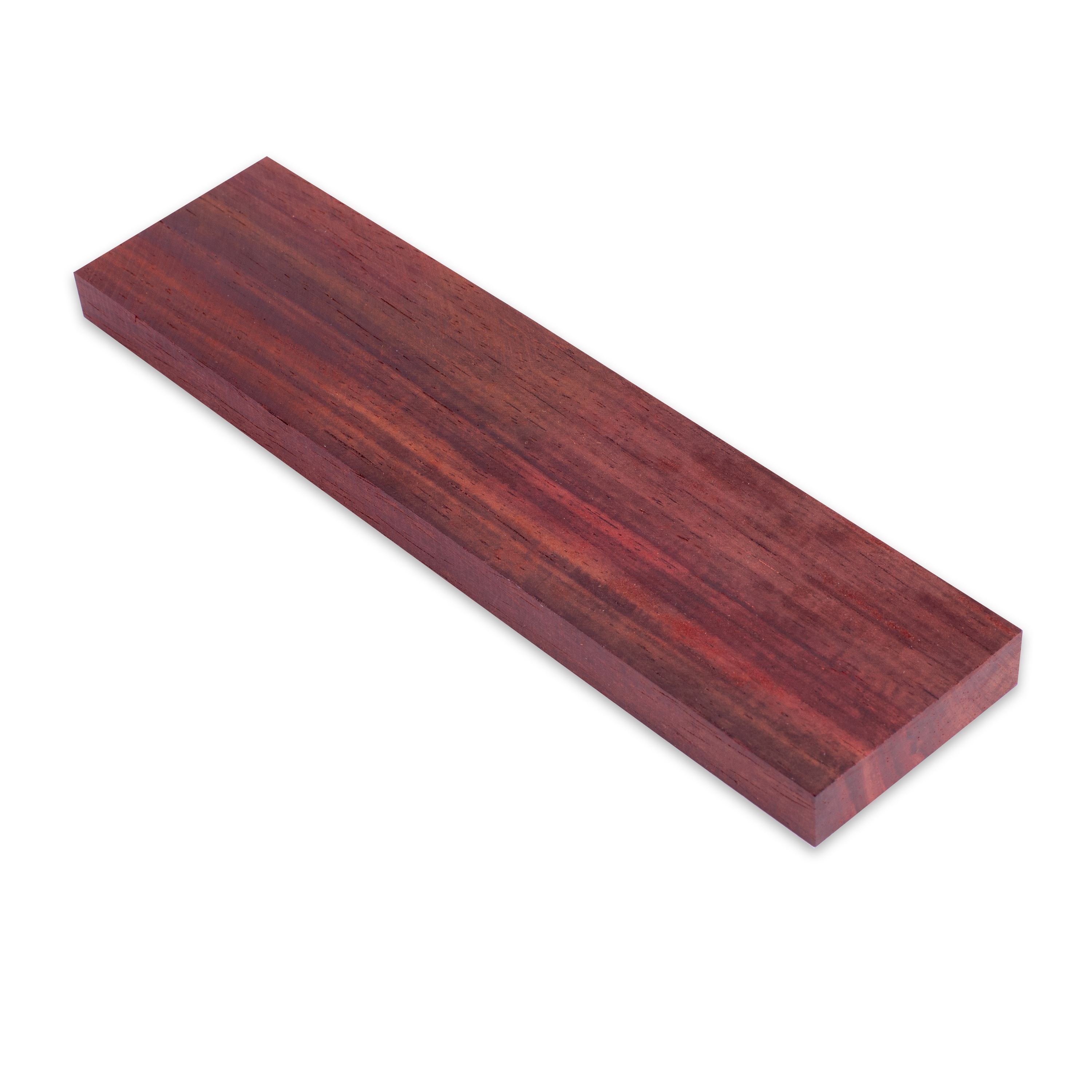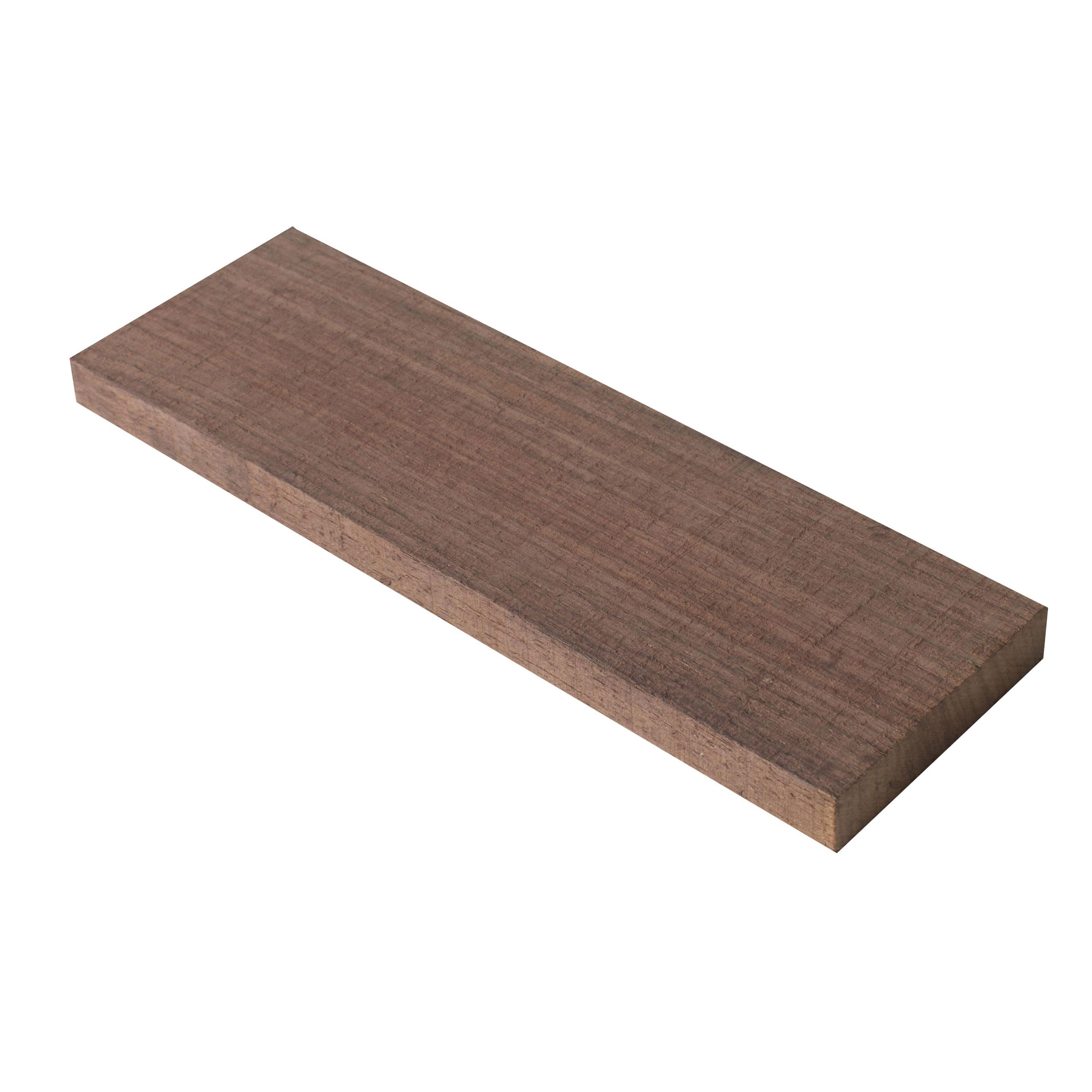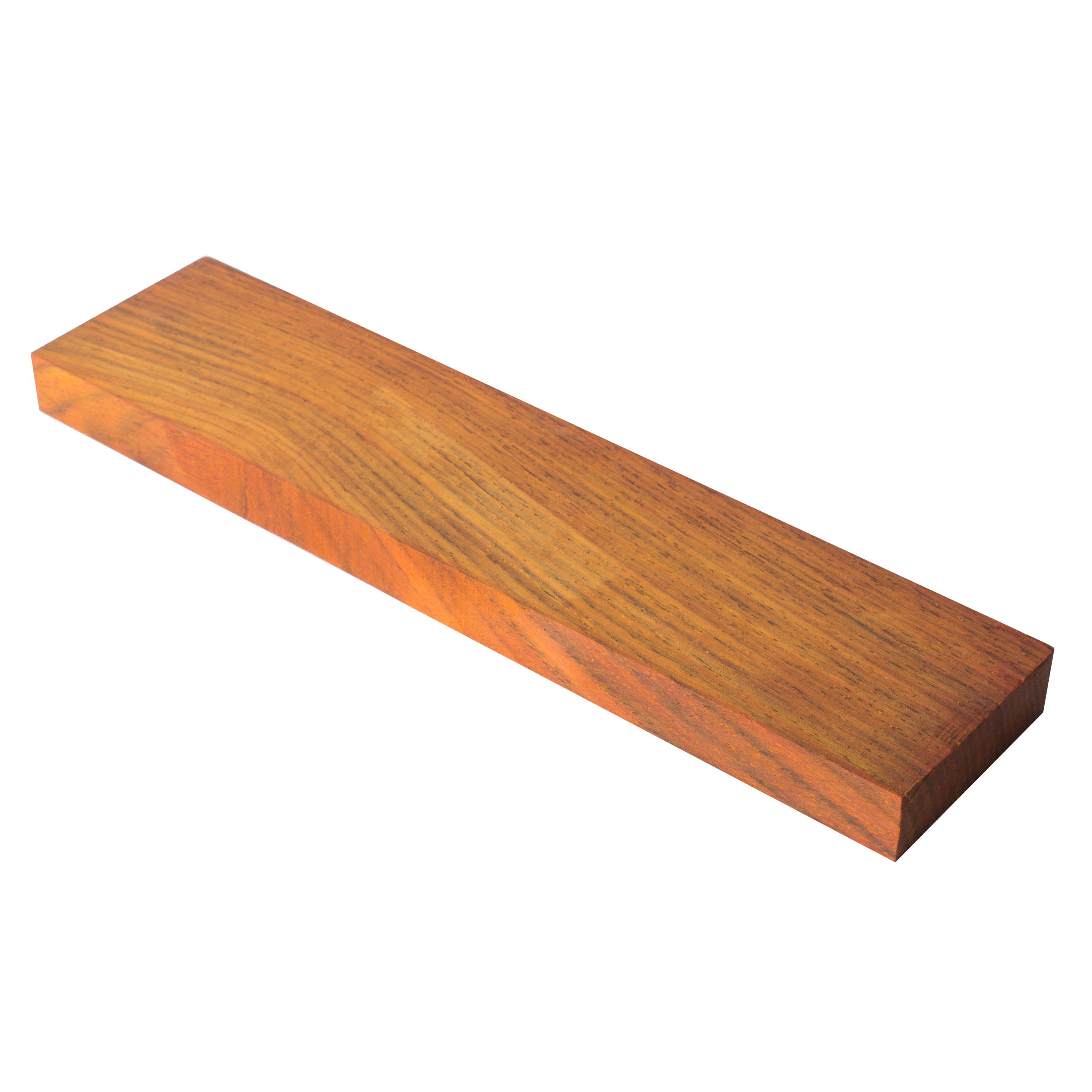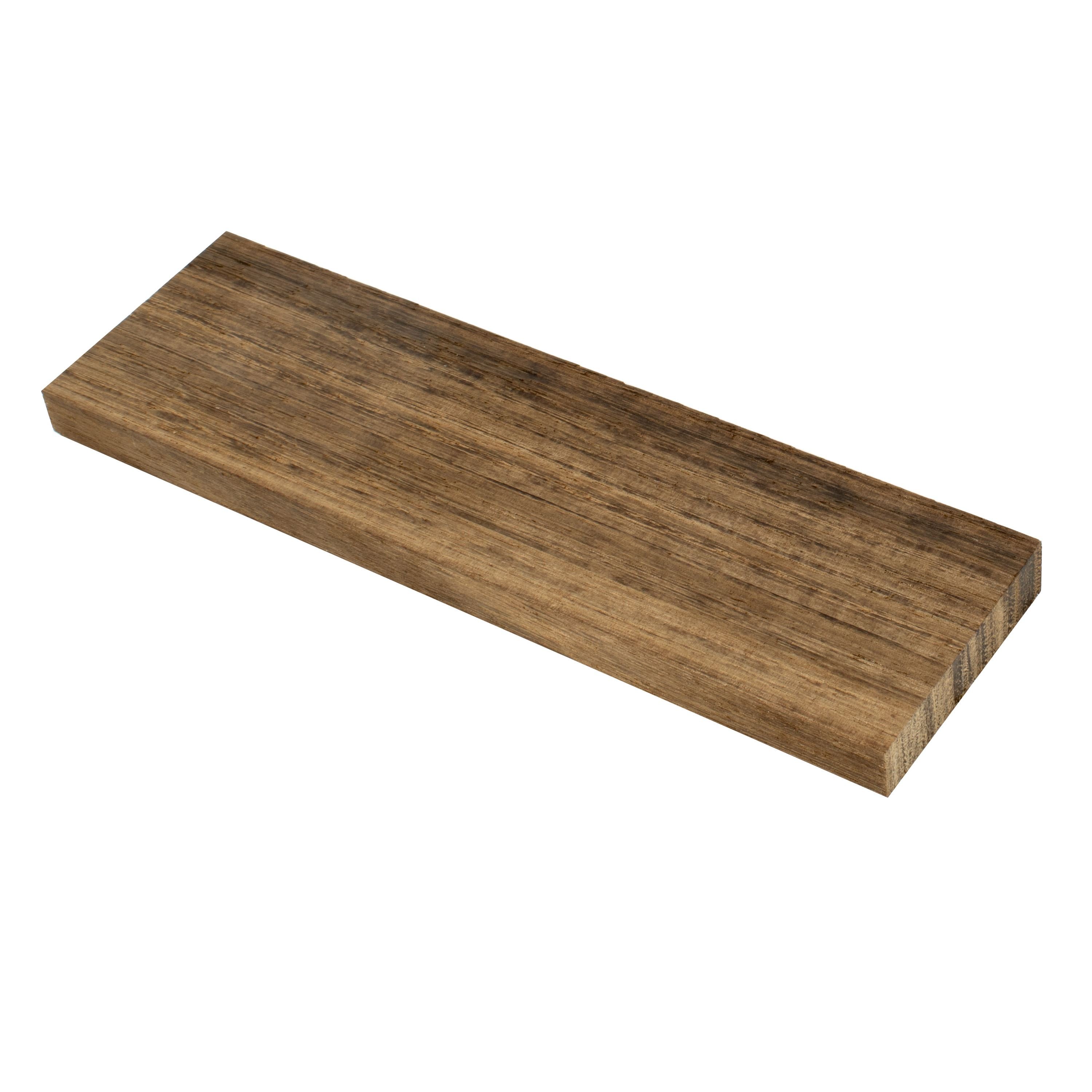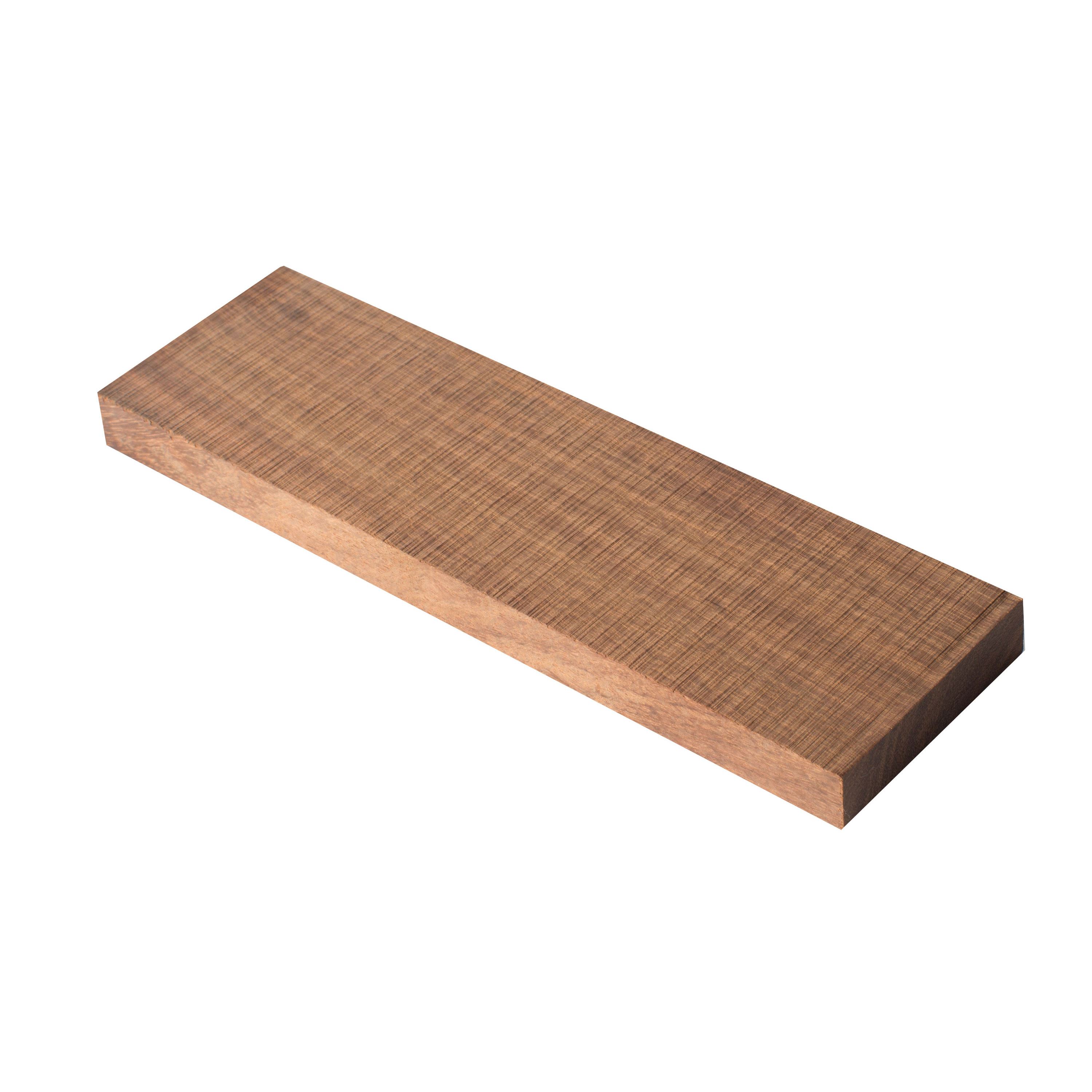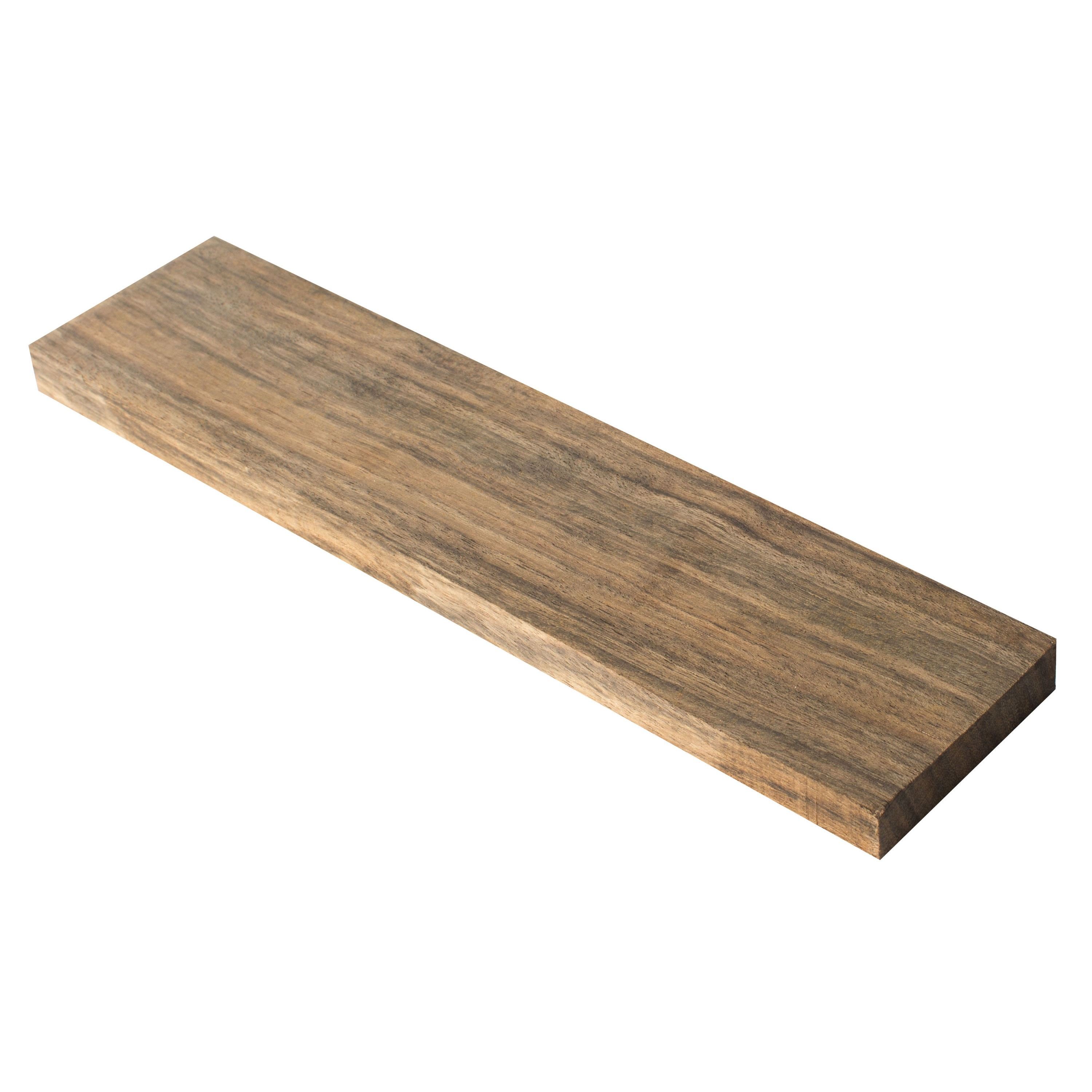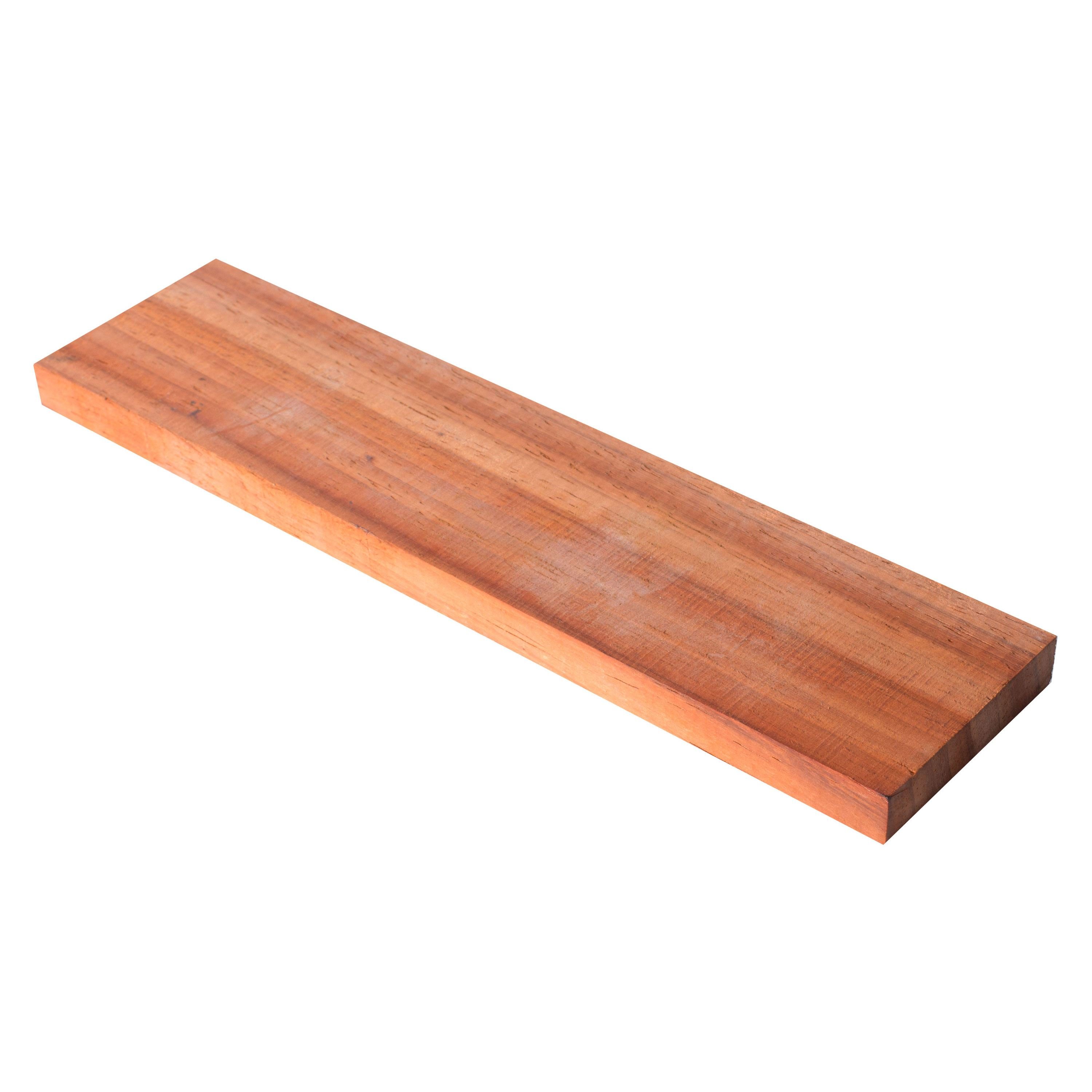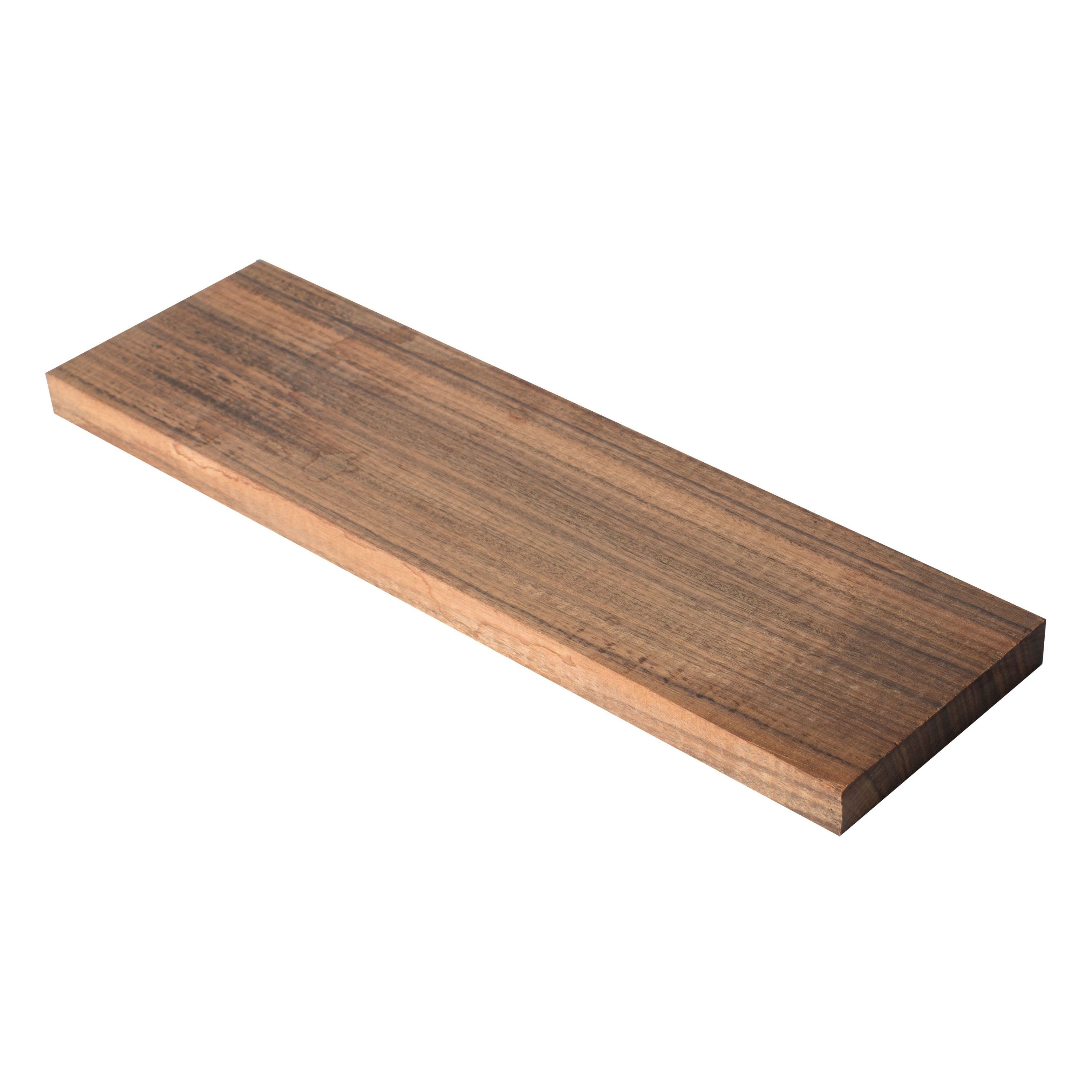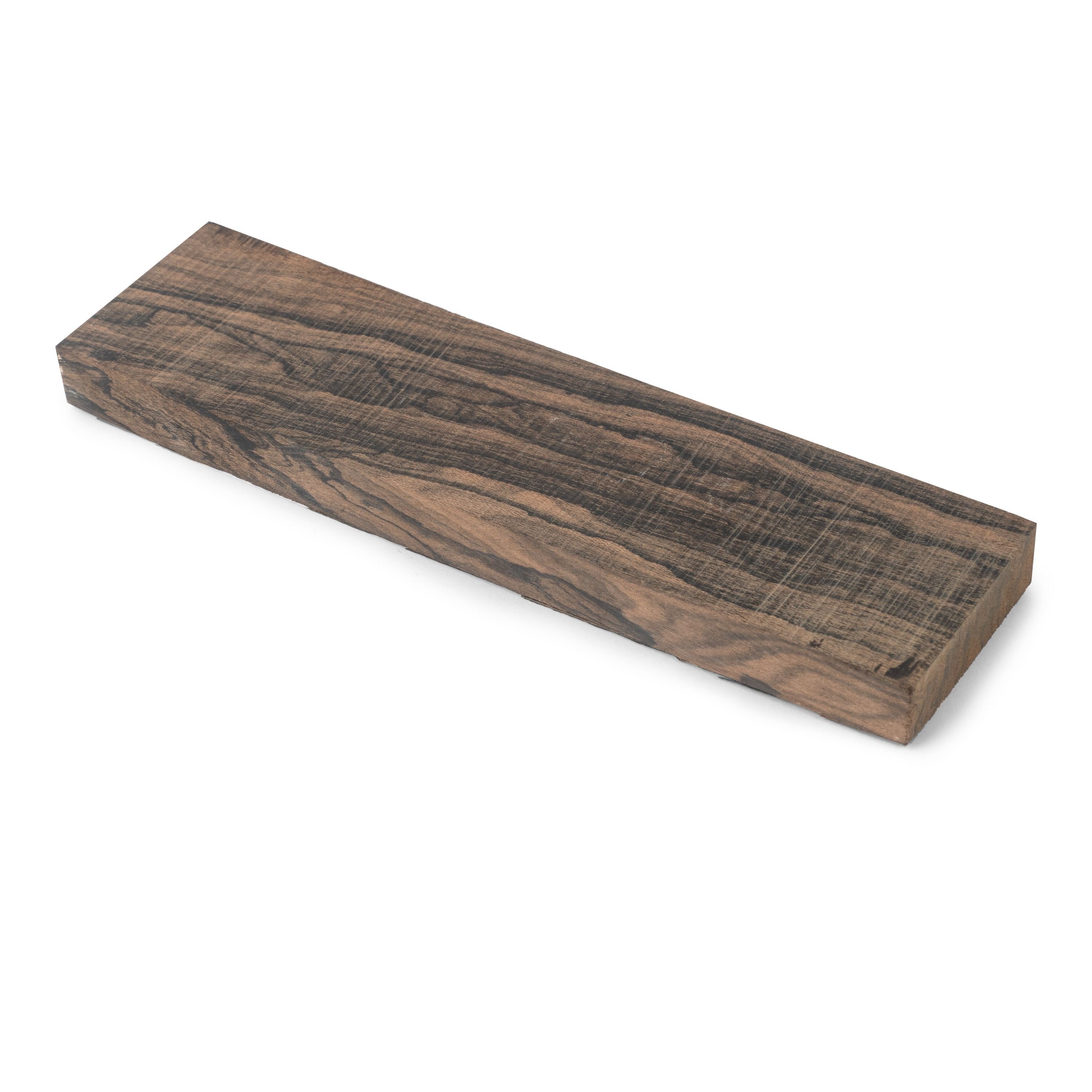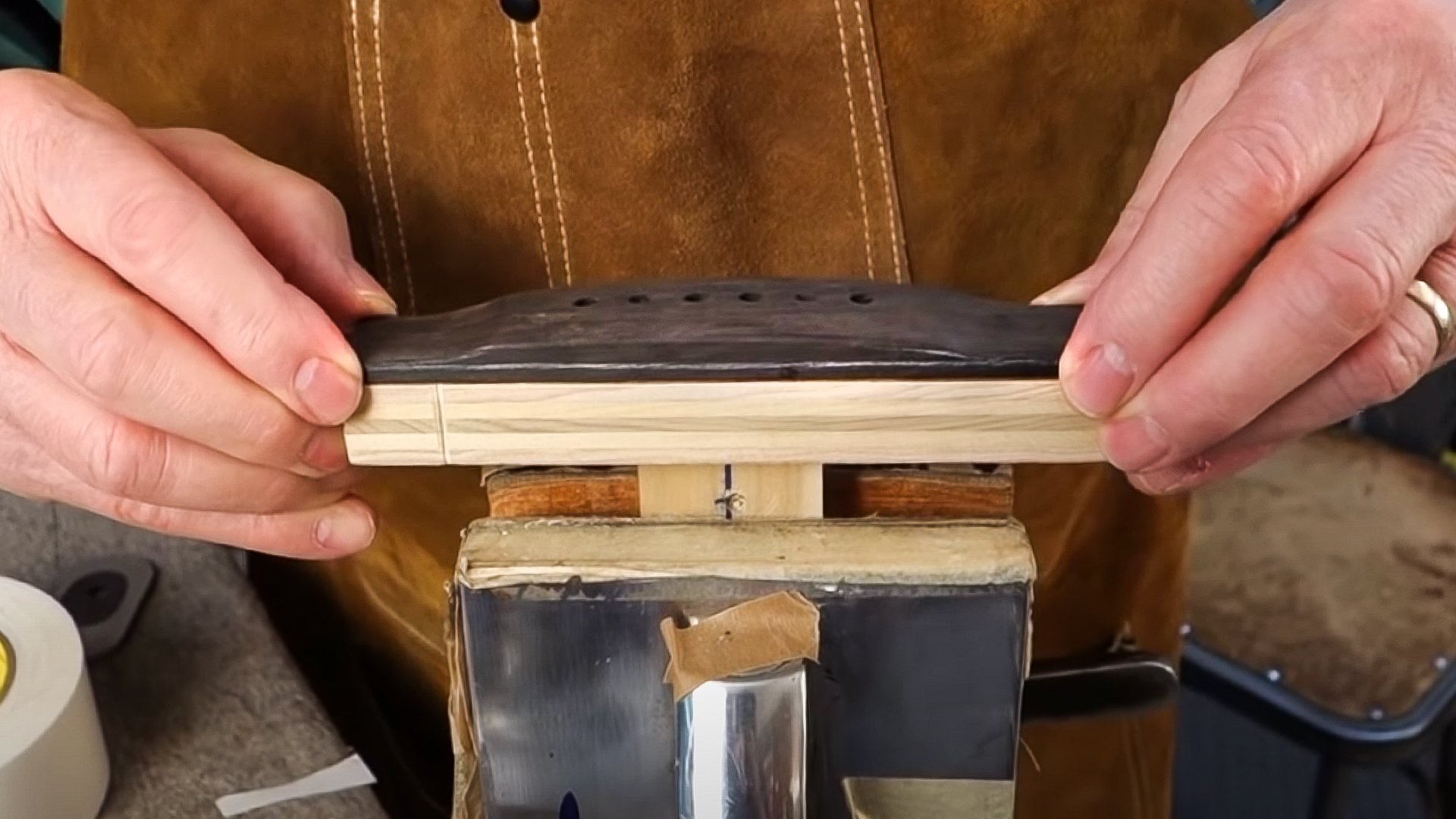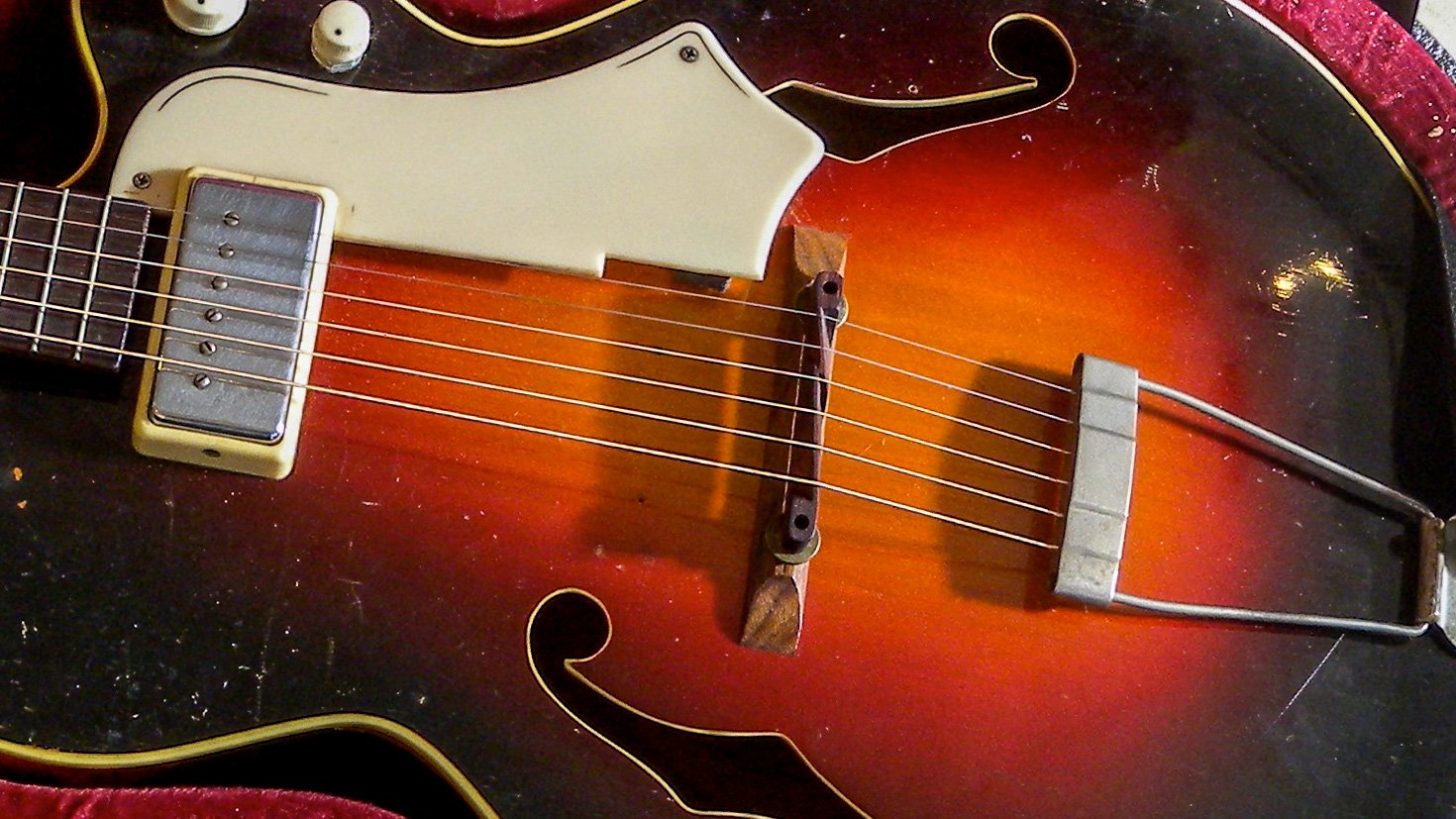Flattop Guitar Bridge Blank
The bridge is one of the most important "braces" on the entire guitar, so it's important to make sure the quality of your bridge stock is absolutely top notch!
The problem is, great, old-school style bridge blanks—the kind players have come to expect on their guitars for decades—have been harder and harder to find.
As a result, our team set out on a mission to scour the world to find sustainable stashes of the best quality bridge blanks available anywhere and now, after much searching, we're proud to stock one of the finest assortments of bridge blanks you'll find anywhere.
Each of our blanks has been kiln dried and is stable and ready for use once it's been acclimated to your shop's environment.
Premium Ebony
This is our finest, blackest Ebony (Diospyros crassiflora). We hand-select each piece to be the most uniform in color and grain. This is how Ebony used to be! We only have Ebony of this quality rarely, so get yours before it’s gone.
Ebony
Our Ebony (Diospyros crassiflora) comes from West Africa and tends to be more uniformly black than we have seen from other sources. However, most African ebony is not perfectly jet black, and most bridge blanks have some visible grain and occasional streaks of greys and tans. We think these visual variations offer character and enhance the aesthetics of most guitars but, if you desire a perfectly dark, jet black appearance, consider using our Premium Ebony blank or Black Fingerboard Stain to darken the board before glue-up to create the desired visual effect.
Brazilian Rosewood
Act fast! We only have a limited amount of these Brazilian Rosewood (Dalbergia nigra) blanks. Many builders and players SWEAR that there is nothing like authentic Brazilian Rosewood. It's visually stunning, with shades of black to chocolate brown coloring. The striking black grainlines range from intense spider-webbing to long, elegant waves. With commercial logging restricted in the 1960s and CITES regulation in the 1990s, these blanks are disappearing rapidly.
Madagascar Rosewood, Master Grade
Madagascar Rosewood (Dalbergia baroni) is the closest commercially available substitute—in both tone and visual appearance—for Brazilian Rosewood (Dalbergia nigra). Our Master Grade offers strong variation, black ink lines and color contrast, from golds to browns to blacks, that make many of these blanks virtually undistinguishable from their Brazilian cousins.
Madagascar Rosewood
Our standard grade Madagascar Rosewood (Dalbergia baroni) bridge blanks are just as high quality as the Master Grade, however, these have a more uniform, brown, straight grained appearance. These offer a more standard understated visual effect and are similar to what you would find on most vintage instruments.
Bois de Rose
Rich and complex in both tone and color, Bois de Rose (Dalbergia maritima) is a very rare and very special tonewood. While a true rosewood from Madagascar, it is distinct from the more widely known Madagascar Rosewood (Dalbergia baronii). This wood showcases a deep wine-red color that oxidizes to a dark shade of purple, reminiscent of an eggplant. Thanks to our partnership with Madinter in Spain, we can legally source this extraordinary wood for our U.S. customers.
Indian Rosewood
It's easy to assume that due to Indian Rosewood's (Dalbergia latifolia) low price this is a lesser quality rosewood, but nothing could be further from the truth. For decades Indian Rosewood has been the choice of boutique builders as well as major manufacturers because it is extremely stable, beautiful, and is (often) much less expensive than more exotic rosewoods. In recent years there have been wide swings in the quality of Indian Rosewood but our team has procured sustainable sources of some of the darkest, most even and straight-grained Indian Rosewood bridge blanks available anywhere.
Cocobolo
Cocobolo (Dalbergia retusa) is another true rosewood that is an excellent choice for bridges. Freshly sanded Cocobolo often appears somewhere between orange and red but, over time, it oxidizes nicely to a deep burgundy, almost black, color. Cocobolo is heavier and denser than most rosewoods and tonally sits between Brazilian Rosewood and Ebony.
Fumed Eucalyptus
Used by Taylor Guitars as a sustainable alternative to Rosewood, Fumed Eucalyptus (Eucalyptus globulus) is an excellent choice for fingerboards and bridges. Also referred to as “Smoked Eucalyptus”, the rich brown color, straight grain, and density are remarkably similar to Indian Rosewood. Developed by Madinter, the ammonia fuming process permanently darkens the wood throughout the entire piece. The fuming process also imparts a temporary aroma that fades over time.
Granadillo
Since all rosewoods are now part of the CITES treaty and international export is prohibited, Granadillo (Platymiscium yucatanum) has been rising in popularity among European and North American builders. It is an extremely inexpensive, dense, non-porous wood that resists wear, has a strong resonant tap-tone and glues well. Most bridge blanks range between sandy and "brick" brown and oxidizes over time to a warm dark brown patina.
Ovangkol
Ovangkol (Guibourtia ehie) has been used for years for acoustic guitar back and side sets, but more recently it has become a popular choice for fingerboards and bridges. Similar in density to Indian Rosewood, Ovangkol is another suitable substitute for CITES restricted rosewoods. Most of our bridge blanks are light to medium brown with dark brown and black grain lines that have an exotic, refined look that makes it a great choice for both tone and visual aesthetics.
Padauk
Padauk (Pterocarpus soyauxii) is an open grained wood that is easy to machine and glue, and offers an extremely beautiful, exotic look to your next custom build. It's tonally similar to Indian Rosewood but has a striking pink/red color that creates a stunning visual effect.
Pau Ferro
In recent years Pau Ferro (Machaerium scleroxylon) has become quite popular—both for fingerboards and bridges—due to its sustainability, excellent resistance to wear and ability to export without CITES certification.
As all rosewoods are now part of the CITES treaty, our Brazilian Rosewood, Indian Rosewood, Madagascar Rosewood, and Cocobolo are not available for international export.
